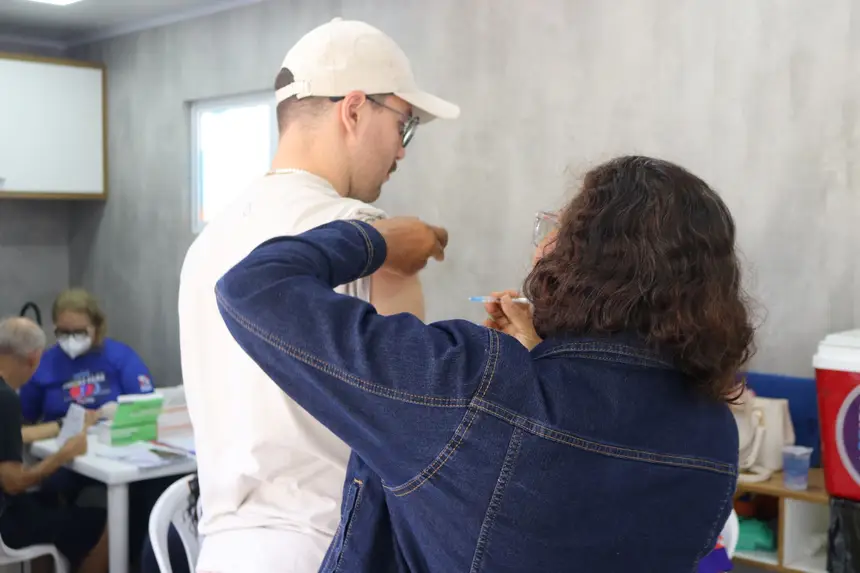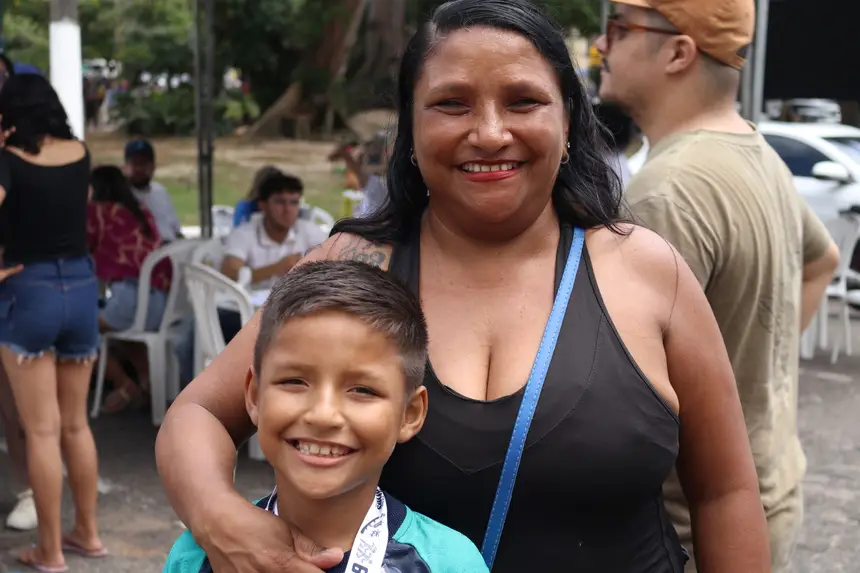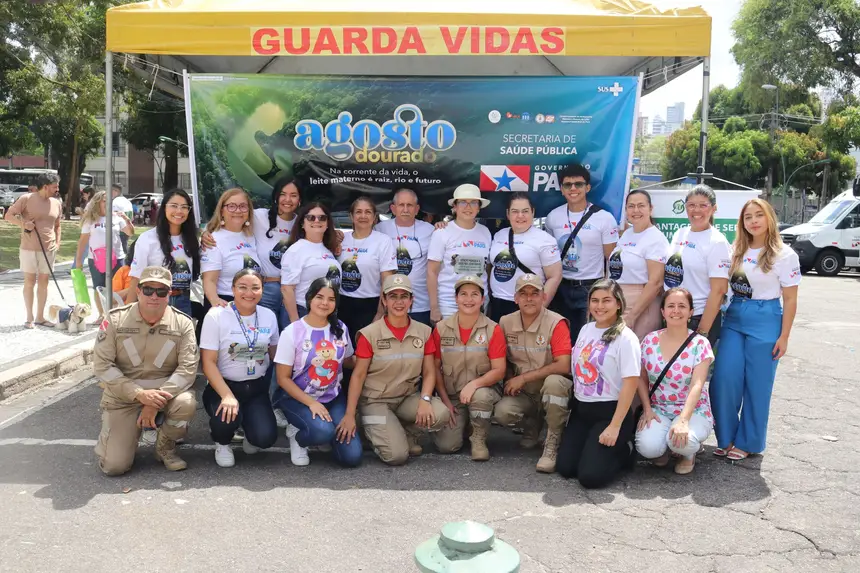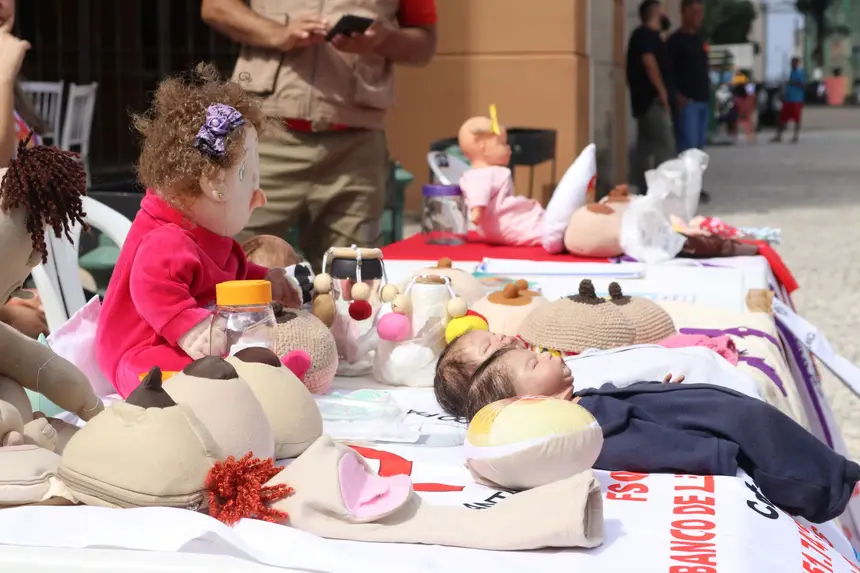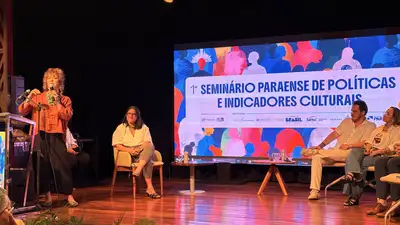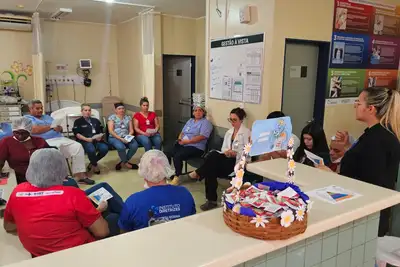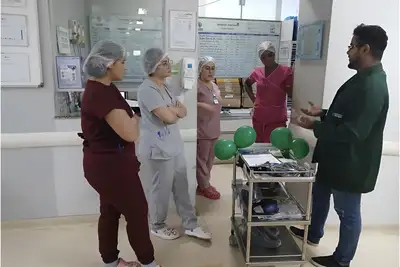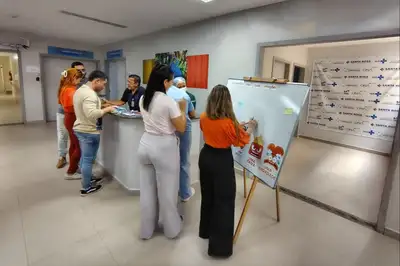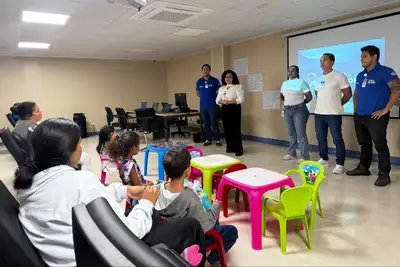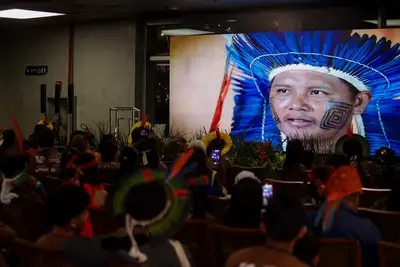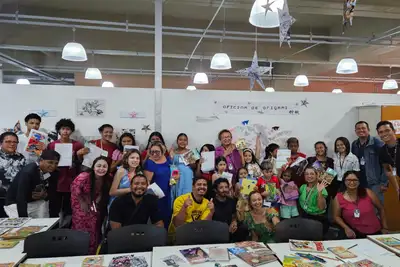Golden August concludes with health services and educational actions on breastfeeding and sustainability
The event took place on Sunday at Praça da República and offered various health services for free
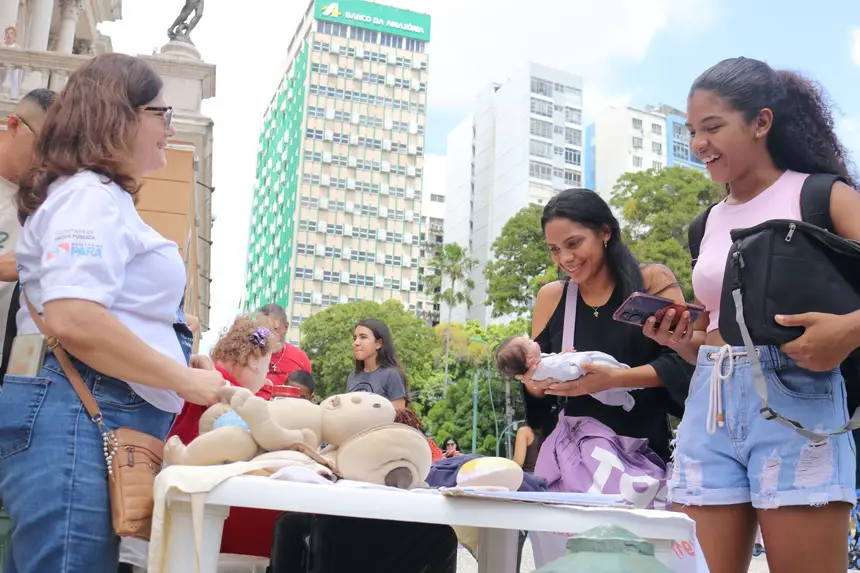
Professor Emily Campos, 21, went for a walk at Praça da República on Sunday and came across the Golden August initiative, promoted by the Public Health Department of Pará (Sespa), together with Santa Casa and the Fire Department, with support from the City Hall of Belém.
For the young woman, the initiative to provide information about breastfeeding, rapid tests, and other health services in a high-traffic location like the square helps a large part of the population, who have a busy routine during the week, to access services more easily.
“I found it very interesting because besides the vaccines, which I was looking for, like the flu vaccine, I also found rapid tests, all available through SUS, so it’s very important,” said Emily, who also considered the guidance on promoting breastfeeding relevant for both breastfeeding and human milk donation.
“There are several scientific studies on how important breast milk is for the child and later for her development. So, these guidelines they are giving us in a very didactic way, showing us how breastfeeding and donation contribute to both the health of the child and the mother, who also needs this support, are very important,” said the professor.
With the theme "Let’s Prioritize Breastfeeding: Building Sustainable Support Systems", the Golden August campaign began in the first week of August, starting from the World Breastfeeding Week promoted by the World Alliance for Breastfeeding Action (Waba - World Alliance for Breastfeeding Action).
According to Ana Cristina Guzzo, the Child Health Coordinator at Sespa, this year’s theme emphasizes the contribution of breastfeeding to the health and sustainability of the planet.
“The more I promote breastfeeding, the more I reduce infant and maternal mortality and bring a series of benefits for the health of the child and the woman. I also bring benefits to the environment by reducing waste disposal, which often has no return and takes 400 years to decompose. I reduce everything that is necessary to produce food formulas and items like pacifiers, bottles, and nipples, which also end up in the environment and contaminating the world we live in,” emphasized Ana Cristina Guzzo.
The coordinator also highlighted the importance of ensuring that encouragement and support for breastfeeding occur permanently in the routine of the basic health network, but also that it is expanded through laws that favor support systems.
“That more and more these systems that support breastfeeding be sustainable, that within basic care we can work on promotion, protection, and support, guiding women, supporting women, because breastfeeding is not easy. Also, the laws, ensuring legislation that supports, like extended maternity leave, because our goal is six months of leave to guarantee six months of exclusive breastfeeding. Today the State already guarantees six months for Pará’s civil servants, but companies only guarantee four months. So we want this to happen, that citizen companies can adhere and start working on breastfeeding for six months as well,” she highlighted.
Among the health services available to the population during the closing program were vaccination, blood pressure measurement, rapid tests for STIs, and referrals for exams.
Nutritionists from Santa Casa, Sespa, and military and volunteers from the Life Firefighters Project provided guidance on breastfeeding and human milk donation.
General services assistant Cláudia Batista participated in the program with her youngest child. She, who received guidance and support while breastfeeding and has also been a donor of the Human Milk Bank (BLH) at Santa Casa, left a message for mothers who breastfeed.
“It’s for mothers to help the next ones, because when we have excess milk, we have to help those babies who don’t have milk.”
How to donate - To be a human milk donor, you need to have excess milk and be in good health.
It is also possible to contribute to the BLH by donating glass jars with screw-top plastic lids used for storing milk.
For more information about registering donors and/or donating jars, please contact: (91) 3251-7311.


